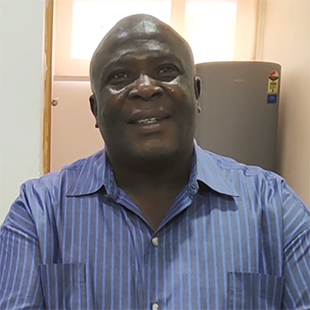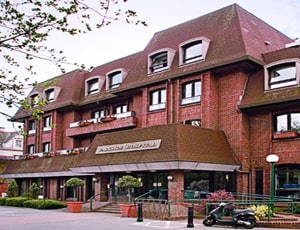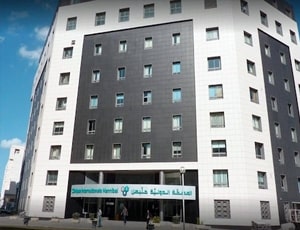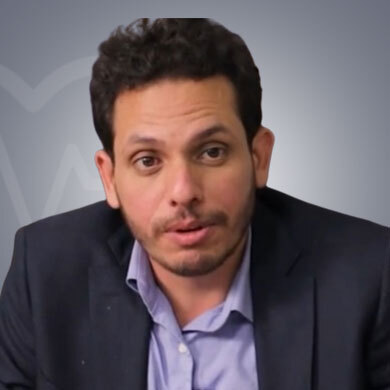Abdominoperineal resection (APR) is a type of a surgery in which the anus, rectum, and sigmoid colon are removed through small cuts in the belly. It is a surgical procedure done primarily to remove the cancer of the rectum. Typically, abdominoperineal resection (AP) is conducted as an elective procedure. This procedure is most often used to treat rectum cancer if it is located very low in the rectum or in the anus, close to the sphincter muscles.
Nowadays, advanced surgical techniques and other treatment modalities have brought an increase in the rate of sphincter-sparing operations. However, APR surgery is still necessary in selected cases, especially if the patient has distal tumors or poor sphincter function. AP resection is a major operation. During perineal resection, the rectum, distal colon, and anal sphincter complex are completely removed using both anterior abdominal and perineal incisions. Once the anus and rectum are removed, a permanent colostomy is needed to complete the procedure.
Colostomy brings the colon to an opening at the surface of the skin, which allows the waste to pass out of the body. This new opening is called stoma and usually measures from one to one-and-a-half inches in diameter. A pouch, or a stoma appliance, is needed to be worn at all times. The stoma has no sphincter muscles, so there is no conscious control over the elimination of waste products from the body after the procedure.
Recovery of the patient depends on individual circumstances and general health of the patient. A patient may be required to stay in the hospital for three to seven days. However, some patients may need more time to recover.
You can walk and stand on the first day after AP resection and resume most of the usual activities shortly after the surgery. In fact, increased activity reduces the risk of blood clots and also improves breathing. A physical therapist will often visit you during your hospital stay and will help regain your strength after the surgery. After getting discharged from the hospital, avoid lifting more than 5 to 10 pounds for 4 weeks, as this allows the incisions to heal. It also decreases the risk of developing a hernia.


Delhi, India
Equipped with more than 50 specialty institutes, Indraprastha Apollo was started with the vision of ...more
![]() Private Driver / Limousine Services
Private Driver / Limousine Services
![]() International Cuisine
International Cuisine
![]() Phone in Room
Phone in Room
![]() Online Doctor Consultation
Online Doctor Consultation

London, United Kingdom
History Parkside Hospital based in London is currently owned by Aspen Healthcare. Aspen Healthcare ...more
![]() Airport Transfer
Airport Transfer
![]() Choice of Meals
Choice of Meals
![]() Interpreter
Interpreter
![]() SIM
SIM

Tunis, Tunisia
History Opened with the commitment of Quality services, Highest quality care, Respect for your priv...more
![]() Airport Transfer
Airport Transfer
![]() Choice of Meals
Choice of Meals
![]() Interpreter
Interpreter
![]() SIM
SIM

Gastrointestinal and Bariatric Surgeon
Istanbul, Turkey
20 Years of experience
USD 205 for video consultation

General & Laparoscopic Surgeon
Delhi, India
25 Years of experience
USD 45 for video consultation

General Laparoscopic Surgeon
Hyderabad, India
6 of experience
USD 30 for video consultation

General Laparoscopic Surgeon
Cairo, Egypt
10 of experience
USD 50 for video consultation
Q: What precautions to take after abdominoperineal resection?
A: After the AP resection is done, you will be instructed to care for your colostomy. You should learn how to use appliances and bags needed to control your body waste output.
After discharge from the hospital, you will be prescribed some pain medication, typically a mild to moderate strength narcotic. Take them as prescribed. You may have some abdominal discomfort or mild nausea for a few days. Therefore, eat slowly and only what is prescribed. Do not forget to drink plenty of liquids.
Q: Will I have pain after APR surgery?
A: Patients are likely to experience some level of pain and soreness after AP resection. However, the duration of pain and discomfort varies from one patient to the other. The surgeon will give you medications to control pain and discomfort. It is important to control pain as you will need to cough and breathe comfortably.
Q: Will my incision be okay after AP resection?
A: You need to take care of your incisions and wound after the surgery as advised by the surgeon at the time of discharge. You should make a note of specific signs such as redness, swelling, inflammation, warmth, and increased pain and inform your surgeon if you notice any signs of an infection.
Q: What can I bath after perineal resection?
A: You can take a normal bath in the hospital and as soon as you reach home. However, you should refrain from bathing in a bathtub and swimming until your doctor approves of it.
Q: What dietary modifications do I need to make after APR surgery?
A: You will be required to take liquid diet and clear liquids after the surgery. You can slowly shift to solid foods as you adjust to the post-surgery changes. Make sure to follow the guidelines given by your doctor for better recovery.